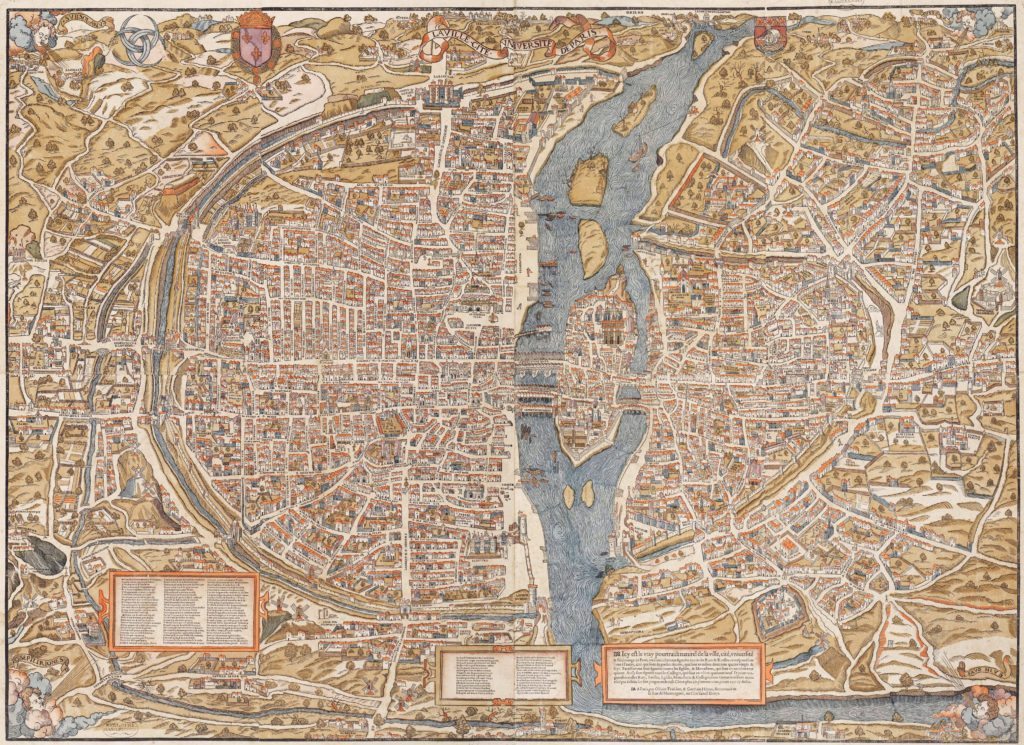Paris Circa 1550
Records from the mid-16th century can be sparse and often don’t provide specific events on a year-by-year basis, especially for a single city. However, during this time, Paris was undergoing significant changes in religious, cultural, and educational spheres, primarily influenced by the Renaissance, the Reformation, and the growth of humanism. Here are some developments around the 1550s that would have had an impact on Paris:
Renaissance Influence: The Renaissance period, which had begun in the late 14th century, was in full swing in Europe by the 1550s, leading to significant changes in arts, science, and cultural norms. Paris, being a central city in Europe, was heavily influenced by these shifts. This era saw increased interest in humanism, exploration, and classical knowledge.
The Protestant Reformation: This period was marked by significant religious upheaval caused by the Protestant Reformation. In 1550, tension between Catholics and the growing number of Protestants in France (primarily Calvinists, known as Huguenots) was intensifying, leading to civil unrest. Although the first French War of Religion didn’t start until 1562, the religious tension of the time would have been palpable in Paris, contributing to the city’s social and political environment.
Growth of the University of Paris: The University of Paris (often known as the Sorbonne) was one of the most important and influential educational institutions in Europe during the Middle Ages and Renaissance. In the 1550s, the university was a center for humanist scholarship and theological disputes, attracting scholars from across Europe.
Architectural Developments: While there might not be specific buildings constructed in 1550, Paris during the Renaissance saw many significant architectural developments influenced by Italian Renaissance architectural principles, introducing a shift from Gothic to Renaissance styles in Parisian architecture.

